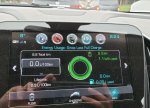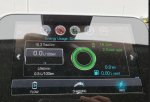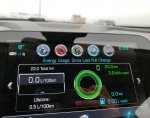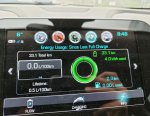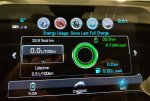Fair argument, but...it doesn't hold water.
We own a house with lots of other hungry electrical devices as well...IE, our hot tub in the backyard, pool pump in the summer (as well as the hot tub still), . In January (for example) the hot tub used 360kWh on it's own.
Looking back, using February as an example, my metering system shows that we used 1637kWh. My Volt used 22.7% of that, my wifes Volt used 20.7% of that, and the hot tub used 17.8% of that. The remainder were typical daily usage of the rest of the electrical loads in our house.
So, a not insignificant amount of our monthly use was, as would totally be expected for an EV owner (much less a multiple EV owner)...our EV's.
But even the 2 of them together equalled less than 50% of our monthly usage.
56.6% of our monthly bill was electricity we would have used regardless if we owned EV's or not.
My argument comes into play in that many of the additional fees on your electricity bill are hard to exactly nail down (sliding scales,
although that's being fixed in the coming years),
and some you pay regardless WHAT you use that electricity for, and most importantly, regardless of how MUCH you use. In short, you're paying a lot of those fees even if you don't own an EV,
so conflating those fees into the overall cost of the electricity used to power your EV is disingenuous.
A great example of that? If your electricity bills were (say, for example) $100/month before you bought an EV, and $120/month after you bought an EV and increased your actual electricity consumption by potentially 50% or more (but your bill by only 20%), is it a sound argument to say that simply dividing the total bill amount by kWh used is actually providing you an actual cost of those kWh's you're putting into your car?
Doing so suddenly has everything else in your house magically subsidizing your EV's electricity consumption, which again, is disingenuous to use as a calculation of actual costs.
So, yes, in the end, I like to go with the direct method view of calculating kWh consumed by the cost per kWh.
This is the true actual cost of the electricity used. 










